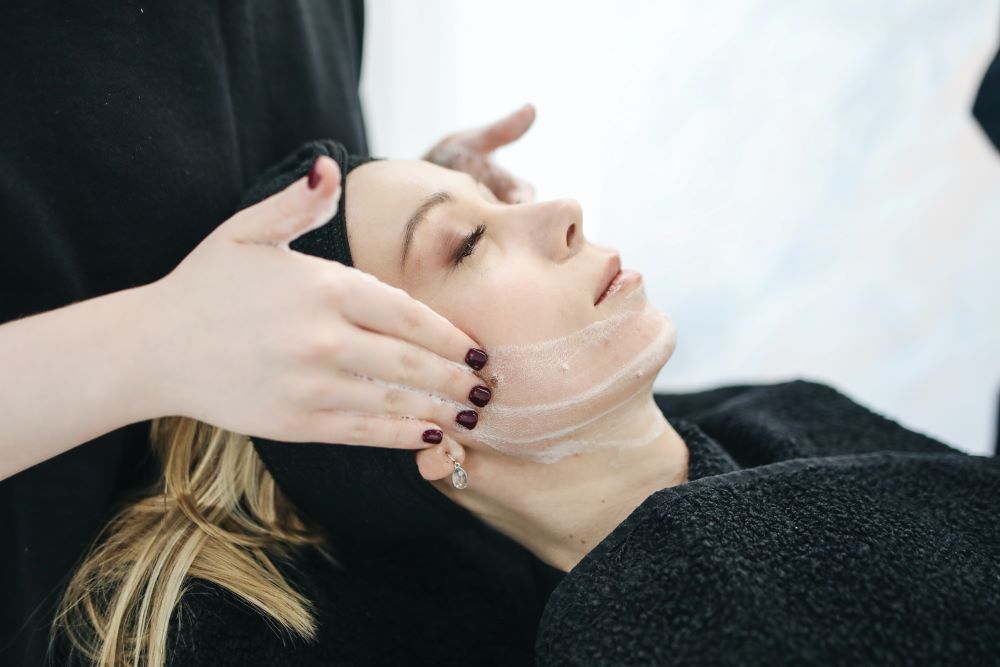Acne scars can be a source of self-consciousness and affect one’s confidence. Dark acne scars, in particular, can be challenging to deal with. However, with the right knowledge and consistent effort, you can significantly reduce their appearance. In this article, we will explore effective methods to remove dark acne scars and regain smooth and even-toned skin.
Understanding Dark Acne Scars
Before diving into scar removal techniques, it is essential to understand the nature of dark acne scars. These scars are a result of post-inflammatory hyperpigmentation (PIH), which occurs when the skin produces excess melanin in response to inflammation. The increased melanin production leads to the darkening of the affected area, making the scar more prominent.
Consistent Skincare Routine
A consistent skincare routine is crucial when aiming to remove dark acne scars. Follow these steps:
- Cleansing: Use a mild cleanser to remove dirt, oil, and impurities from your skin. Avoid harsh products that can further irritate the skin and worsen the scars.
- Exfoliation: Regular exfoliation helps remove dead skin cells and encourages skin cell turnover. Opt for chemical exfoliants like salicylic acid or glycolic acid, which gently slough off the top layer of the skin without causing excessive irritation.
- Moisturizing: Hydrating the skin is essential for its overall health. Look for a moisturizer that contains ingredients like hyaluronic acid or ceramides, which help repair the skin barrier and promote healing.
- Sun Protection: Protecting your skin from the harmful effects of the sun is crucial. Apply a broad-spectrum sunscreen with an SPF of 30 or higher daily, even on cloudy days. Sun exposure can darken scars and make them more visible.
Targeted Treatments
To specifically target dark acne scars, consider the following treatment options:
- Topical Lightening Agents: Look for topical creams or serums that contain ingredients like hydroquinone, kojic acid, or niacinamide. These ingredients have skin-lightening properties and can gradually fade dark acne scars with consistent use.
- Chemical Peels: Chemical peels involve the application of a chemical solution to the skin, which exfoliates the top layer and promotes new skin cell growth. Mild peels with ingredients like glycolic acid or lactic acid can be effective in reducing the appearance of dark acne scars.
- Microneedling: Microneedling is a procedure that uses tiny needles to create controlled micro-injuries in the skin. This process stimulates collagen production and enhances skin regeneration. When performed by a professional, micro needling can help reduce the appearance of dark acne scars.
- Laser Treatments: Laser therapies, such as fractional laser resurfacing or intense pulsed light (IPL), can effectively target dark acne scars. These treatments work by breaking down the scar tissue and stimulating collagen production, leading to smoother and more even-toned skin.
Natural Remedies
In addition to professional treatments, several natural remedies may help fade dark acne scars:
- Lemon Juice: Lemon juice contains natural bleaching properties due to its high vitamin C content. Apply freshly squeezed lemon juice to the scars and leave it on for 10-15 minutes before rinsing off. However, be cautious as lemon juice may cause skin irritation in some individuals.
- Aloe Vera: Aloe vera has soothing and healing properties. Apply pure aloe vera gel to the scars and leave it on for 30 minutes before rinsing off. Regular use can help reduce scar appearance.
- Honey: Honey is known for its antibacterial and skin-repairing properties. Apply raw honey to the scars and let it sit for 15-20 minutes before rinsing off. Honey can help fade dark acne scars over time.
- Rosehip Seed Oil: Rosehip seed oil is rich in essential fatty acids and antioxidants, making it beneficial for scar healing. Massage a few drops of rosehip seed oil onto the scars twice a day to promote skin regeneration and reduce discoloration.
Patience and Persistence
It is important to note that removing dark acne scars takes time and patience. Results may not be immediate, and it may require consistent effort to see noticeable improvements. Remember to be gentle with your skin and avoid picking or squeezing acne, as it can worsen scarring.
Seeking Professional Advice
If your dark acne scars persist despite your efforts, it may be beneficial to seek professional advice from a dermatologist. They can assess your specific condition and recommend personalized treatments tailored to your needs. Dermatologists have access to advanced procedures and prescription-strength products that can effectively address dark acne scars.
Removing dark acne scars requires a combination of consistent skincare, targeted treatments, and patience. Establish a skincare routine that includes cleansing, exfoliating, moisturizing, and sun protection. Consider using topical lightening agents, chemical peels, microneedling, or laser treatments under professional guidance.
Natural remedies like lemon juice, aloe vera, honey, and rosehip seed oil can also complement your efforts. Remember to be persistent and seek professional advice if needed. With time and dedication, you can reduce the appearance of dark acne scars and achieve smoother, more even-toned skin.
